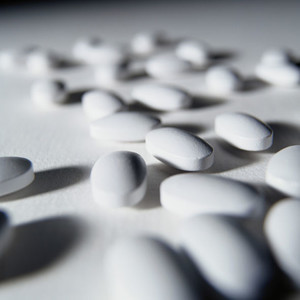Amgen, in a statement issued on 1 February 2013, has hit back at accusations that the biotech giant is attempting to limit the uptake of biosimilars in the US by backing state bills, which constrain the use of biosimilars.
Amgen stated that reports in The New York Times failed to mention that the company is developing both original biologicals and biosimilars and that their support for state pharmacy acts is based on the company’s belief that enhanced safety monitoring and transparency of substituted biologicals is in the interest of patient safety.
Reports had accused Amgen and Genentech, two major biotechnology firms, of backing bills which would restrict pharmacists from substituting originator biologicals with biosimilars [1].
FDA is still to approve a biosimilar and has yet to issue final guidelines outlining the regulatory requirements for approval of a biosimilar in the US. Despite this fact, biosimilar substitution legislation is currently pending in 10 US states, according to the Pharmaceutical Care Management Association which represents pharmacy benefit managers. The states with legislation pending are Arkansas, Colorado, Florida, Indiana, Massachusetts, Mississippi, North Dakota, Texas, Virginia and Washington.
The legislation, once passed, would require pharmacists to notify the prescribing physician within a certain number of days after the substitution and require the physician and pharmacist to maintain a record of the substitution for some years. Opponents of the legislation, including The Association of Mature American Citizens (AMAC), the Generic Pharmaceutical Association (GPhA) and pharmacy benefit managers, say that it is aimed at creating competition barriers for biosimilars and making it more difficult for patients to get access to biosimilar medicines [2].
Amgen, however, believes that ‘states’ efforts to create substitution rules that strengthen communication between physician, pharmacist and patient will help accelerate the successful implementation of the US biosimilars pathway.’ Adding that ‘safe substitution of biologic[al]s and biosimilars requires not just that medicines are safe – but also that the physician is notified about the actual product dispensed when different from that prescribed, and can maintain the patient record accordingly.’
Editor’s comment
What is your opinion on the US legislation of biosimilar substitution? Does it limit or enhance biosimilar substitution in the US? Please feel free to share your thoughts via email or in the comments section below.
Related articles
Biosimilars interchangeability, increased costs and burden for FDA
Interchangeability not covered in FDA draft biosimilar guidance
References
1. GaBI Online - Generics and Biosimilars Initiative. Biotech firms try to limit biosimilar substitution in US [www.gabionline.net]. Mol, Belgium: Pro Pharma Communications International; [cited 2013 Feb 22]. Available from: www.gabionline.net/Biosimilars/News/Biotech-firms-try-to-limit-biosimilar-substitution-in-US
2. GaBI Online - Generics and Biosimilars Initiative. AMAC and GPhA hit back at Big Pharma over biosimilars [www.gabionline.net]. Mol, Belgium: Pro Pharma Communications International; [cited 2013 Feb 22]. Available from: www.gabionline.net/Biosimilars/News/AMAC-and-GPhA-hit-back-at-Big-Pharma-over-biosimilars
Permission granted to reproduce for personal and educational use only. All other reproduction, copy or reprinting of all or part of any ‘Content’ found on this website is strictly prohibited without the prior consent of the publisher. Contact the publisher to obtain permission before redistributing.








 0
0











Post your comment